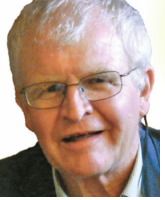Why it’s important to connect with people in a meaningful way
I have written before that a positive work climate starts at the top with leaders investing time in people and showing that they care. A core skill is empathy, which Inc.com columnist Justin Bariso describes as “understanding others’ thoughts and feelings to help you connect with them. Instead of judging or labeling others, you work hard to see things through their eyes.”
Bariso goes on to add this important perspective: “Empathy doesn’t necessarily mean agreeing with another person’s point of view. Rather, it’s about striving to understand.”
Striving to understand another’s perspective seems like a bit of a lost art these days, but it cannot be emphasized enough. Listening to understand (and not just to reply), including asking questions in the spirit of curiosity, are invaluable for working with others. And, of course, these skills are beneficial for us all, not just people in formal leadership roles.
I define leadership as actions and behaviors that influence the actions and behaviors of others. Under this definition, most people exhibit leadership skills every day, often without even thinking of themselves as leaders. Research has shown that only a very small percentage of people lack leadership potential — don’t ever sell yourself short!
A big challenge these days is connecting with people who see things differently. In her powerful new book “I Never Thought of It That Way,” Monica Guzman writes, “When you’re surrounded by people who reflect the same basic set of perspectives, you’ll find it harder to grasp any others.”
I have been thinking about this in light of the recent U.S. Supreme Court decision overturning Roe vs. Wade. At its core, the abortion debate is about two competing values: the rights of a fetus with the potential for human life versus the rights of a woman to decide about bearing a child.
When I first ran for state representative in the late 1980s, I did some soul-searching and came down on the pro-choice side of the abortion question, but I always tried to recognize that those on the other side had legitimate arguments, too. For me, this debate is tough stuff, not for the faint of heart.
Sadly, in the wake of the court ruling, I am not hearing much discussion about values or having meaningful conversations with those on the other side. While there are certainly people in the middle, they are drowned out as competing camps draw hard lines using terms such as “babykillers,” “women-haters,” etc. “Us vs. them” seems to dominate the public discourse.
Guzman writes, “When we focus so much on the righteousness of our side, we stop thinking straight, we stop seeing straight, and we lose the ability to truly consider what’s different.”
This is where empathy comes in, with the commitment to really listening and being curious. Most of us increasingly operate in silos. We spend more and more of our time with those who think like us, which further reinforces our sense of being right, as well as a disregard for “those people” on the other side.
Of course, empathy is about more than connecting with people who disagree with your politics. Meaningful connections with family, friends, neighbors, co-workers and employees who are suffering from loss, health issues or regular day-to-day problems can be very meaningful.
I am the first to admit that I am not a great listener (although hopefully I am improving). Listening to understand, as opposed to listening to reply, is hard but so important. Afterall, Steven Covey ranked it as one of his seven habits of highly effective people.
It is incumbent on all of us, whether in formal leadership roles or not, to continually learn and grow. Empathy and emotional intelligence are areas where most can benefit from personal improvement. Aside from the benefit to yourself, those you interact with will greatly benefit, too. If you are a business leader, it might even improve your bottom line.
How are you doing when it comes to applying empathy, curiosity and listening skills in your life and work? What areas could use improvement, and what steps could you take to up your emotional intelligence game?
We each have an extraordinary opportunity to make a difference in people’s lives, including our own. Don’t underestimate your impact!
Douglass P. Teschner, founder of Growing Leadership LLC, can be reached at dteschner@Growing-LeadershipLLC.com.